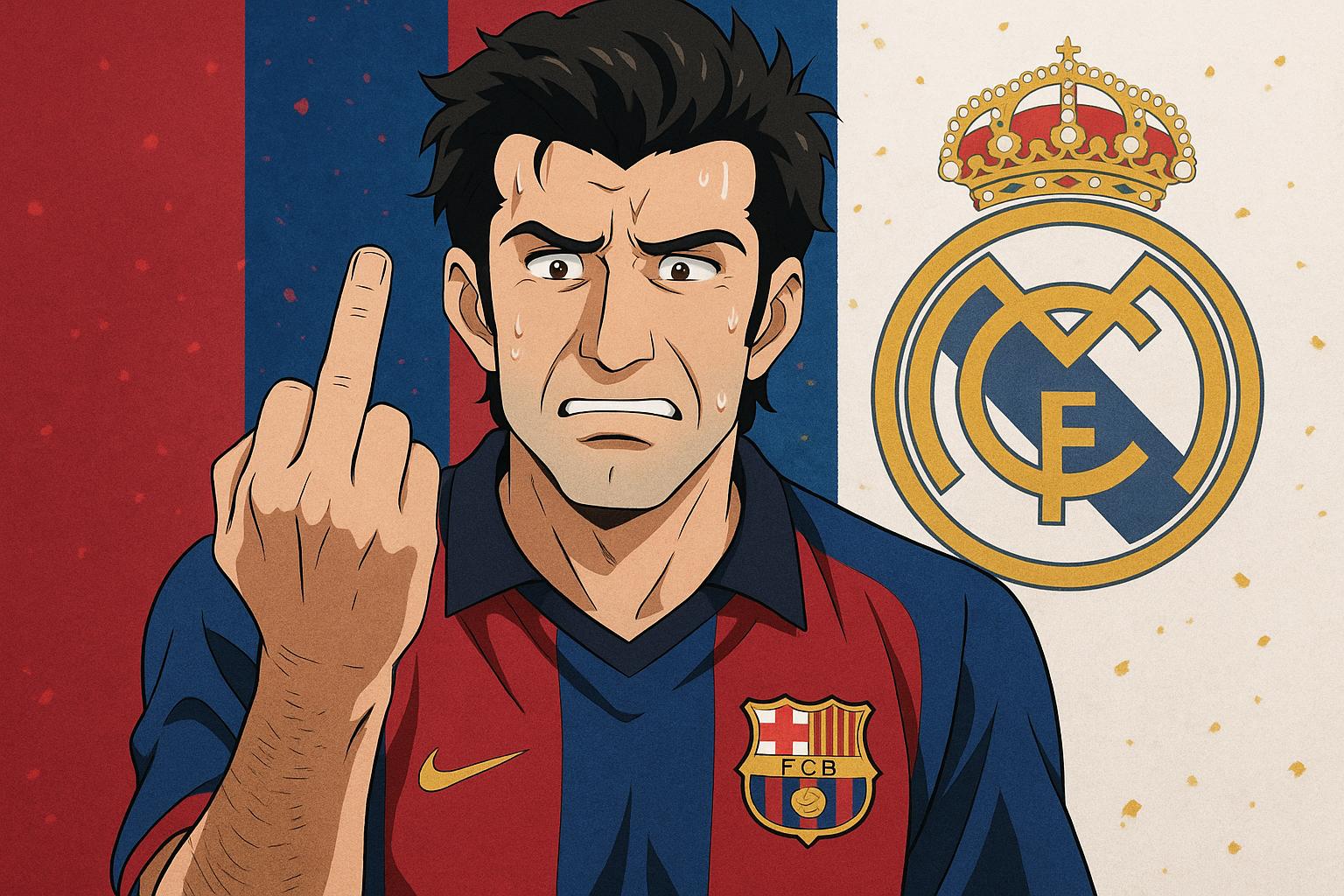Luis Figo, the Portuguese football icon, recently found himself at the centre of yet another controversy, this time due to an encounter on the streets of Lisbon. Attending the official dinner for the Women's Champions League final, Figo was confronted by a Barcelona supporter who dubbed him a "traitor" for his infamous decision to switch allegiance to Real Madrid in 2000. In a moment captured on camera, Figo responded with an obscene gesture before opting to walk away, realising the situation was unfolding in front of onlookers.
Figo's transition from Barcelona to Madrid was not just a personal choice; it marked a significant moment in football history, particularly due to the fierce rivalry between the two clubs. His move was conducted for what was then a world record fee of £52 million, and it sparked outright animosity among Barcelona fans. Notably, during his return to Camp Nou mere months after the transfer, Figo faced an overwhelming onslaught of abuse and hostility, including the infamous incident where a pig's head was thrown at him as he prepared to take a corner kick during an El Clasico match in 2002. This act has been cemented in football lore as a symbol of the intense rivalry and the often vicious passion that surrounds it.
Reflecting on the fallout of his transfer years later, Figo stated, "In the end, I thought about myself. Was it selfish? Maybe. Did I earn more money? Yes, but if I'd stayed, I'd have earned the same." His words indicate a deep sense of conflict regarding the loyalty and expectation inherent in the world of football, especially in the context of such a polarising decision. The move was part of a strategy by Real Madrid to secure star players, a tactic that has continued to define their approach to competition.
The animosity surrounding Figo's departure has had lasting implications. Several years following the transfer, Barcelona supporters continued to express their disdain, with some famously waving fake bank notes to mock him. Such acts were part of a broader atmosphere of aggression, with Figo recalling that he experienced heightened security measures and constant scrutiny following his controversial switch. “These days, there's more protection,” he remarked, acknowledging the serious nature of threats he faced during that period in his career.
Figo's experience illustrates the complexities of player loyalty in professional football, where significant decisions can lead to irreversible changes in public perception and fan relationships. The emotional charge of his transfer reflected deeper issues of identity and allegiance that resonate throughout football culture. It serves as a reminder that the sport often transcends mere games, evolving into a battleground for loyalty, betrayal, and the heated rivalries that define it.
Notably, the themes surrounding Figo's move are echoed in more recent events, such as another incident in Brazilian football where a pig's head was hurled onto the pitch, drawing clear parallels to Figo’s past. Such acts of hostility reveal a troubling continuity in fan behaviour that suggests that if anything, the tension between supporters remains as intense as ever.
As Figo navigates the complex landscape of footballing legacy, it is evident that his controversial decisions continue to stir debates surrounding player loyalty and the visceral emotions tied to club allegiances. His tale is emblematic of the broader narratives that define the beautiful game, where passion often surpasses rationality, leading to moments of both brilliance and conflict.
Reference Map:
- Paragraph 1 – [1], [5]
- Paragraph 2 – [1], [2], [3]
- Paragraph 3 – [1], [4]
- Paragraph 4 – [1], [6]
- Paragraph 5 – [1], [7]
Source: Noah Wire Services
